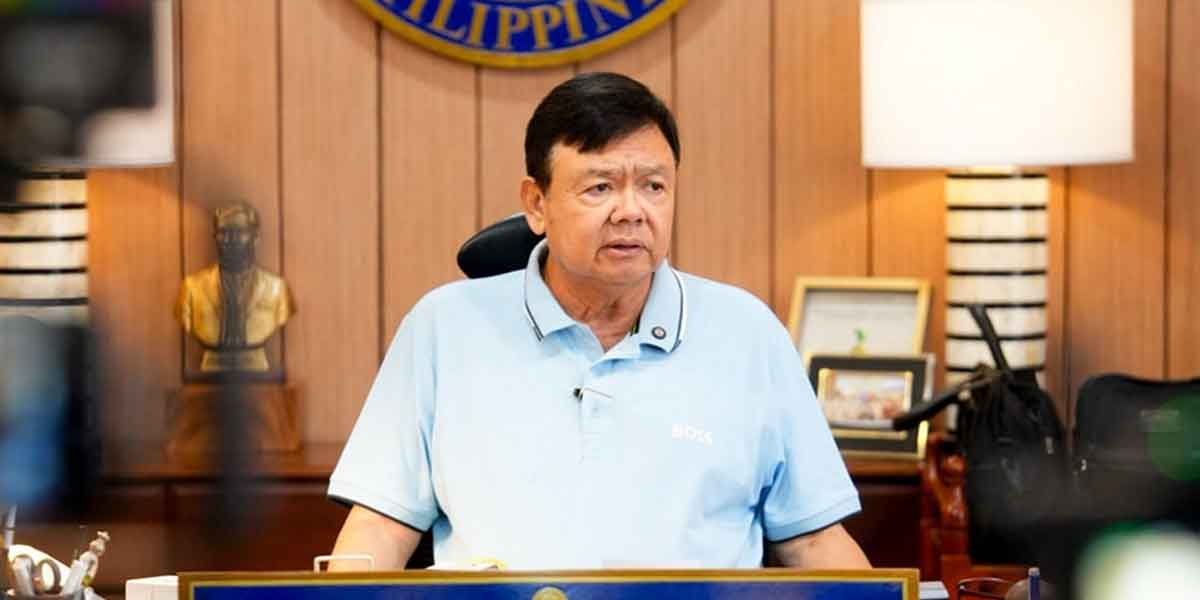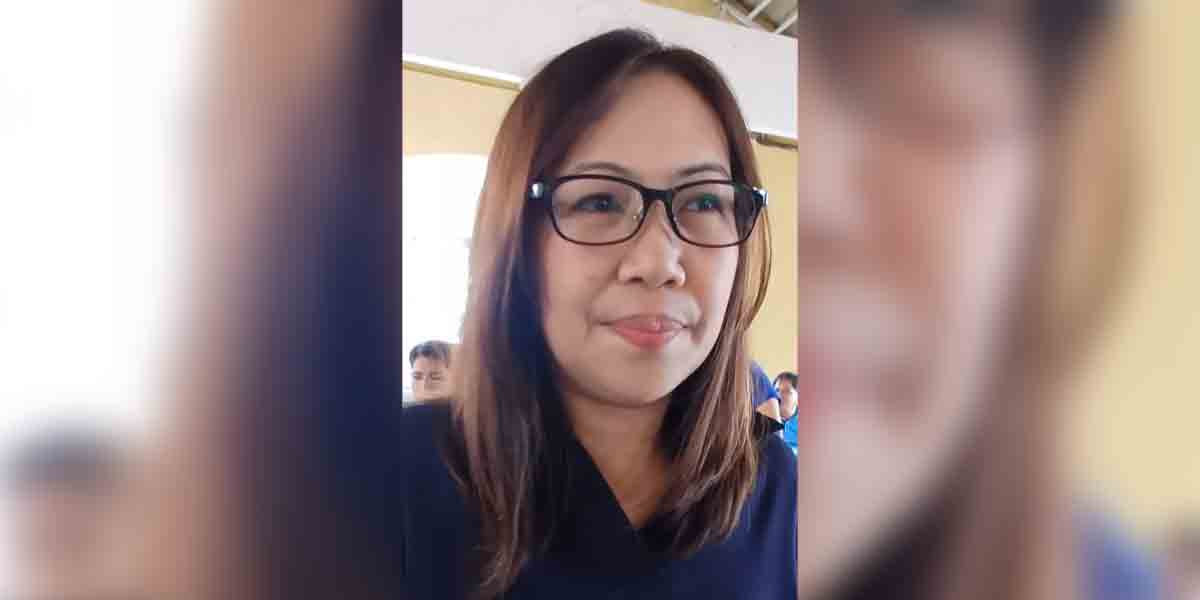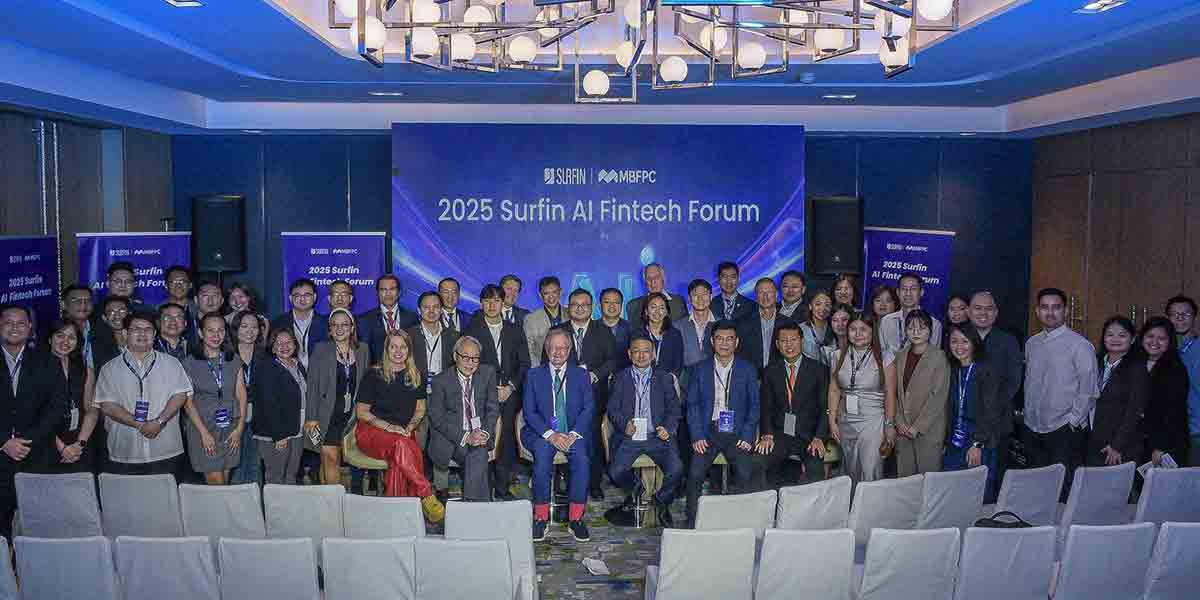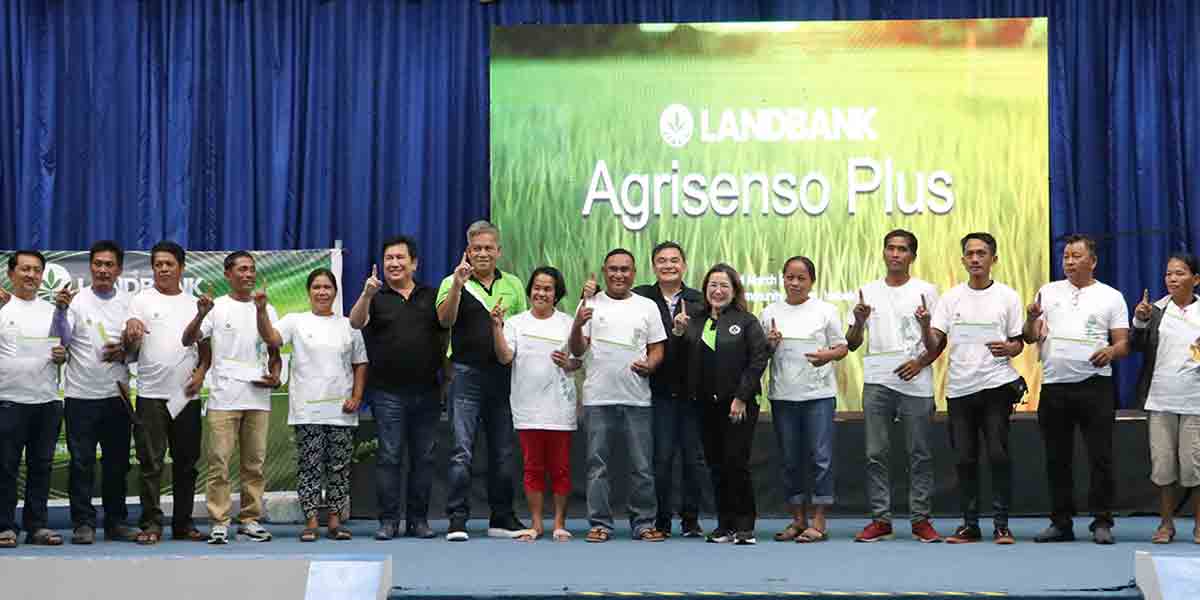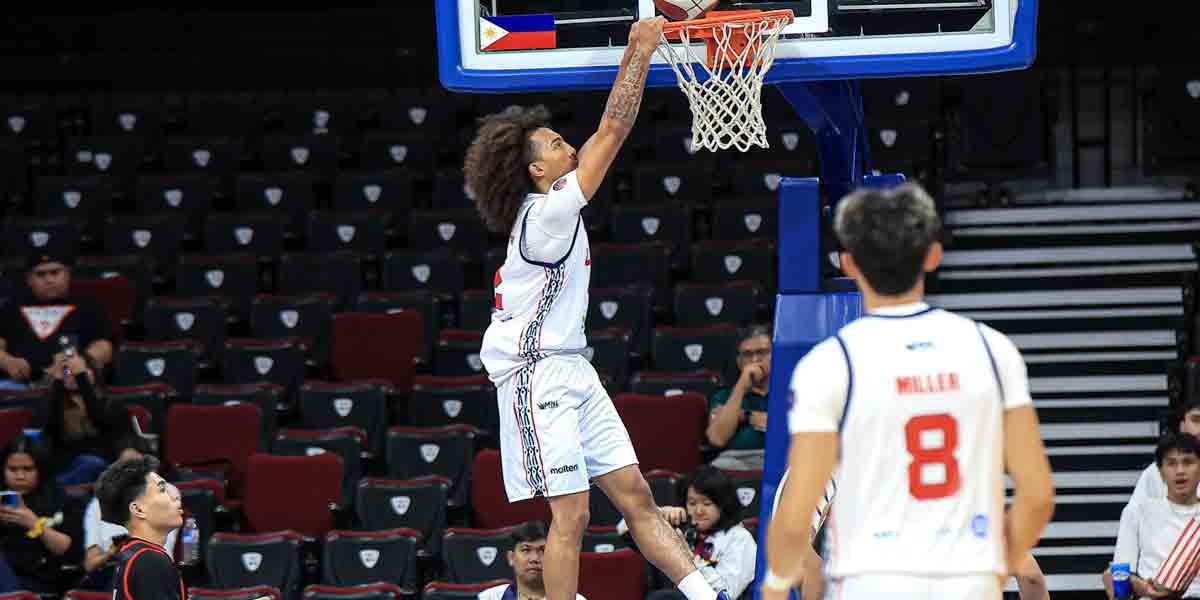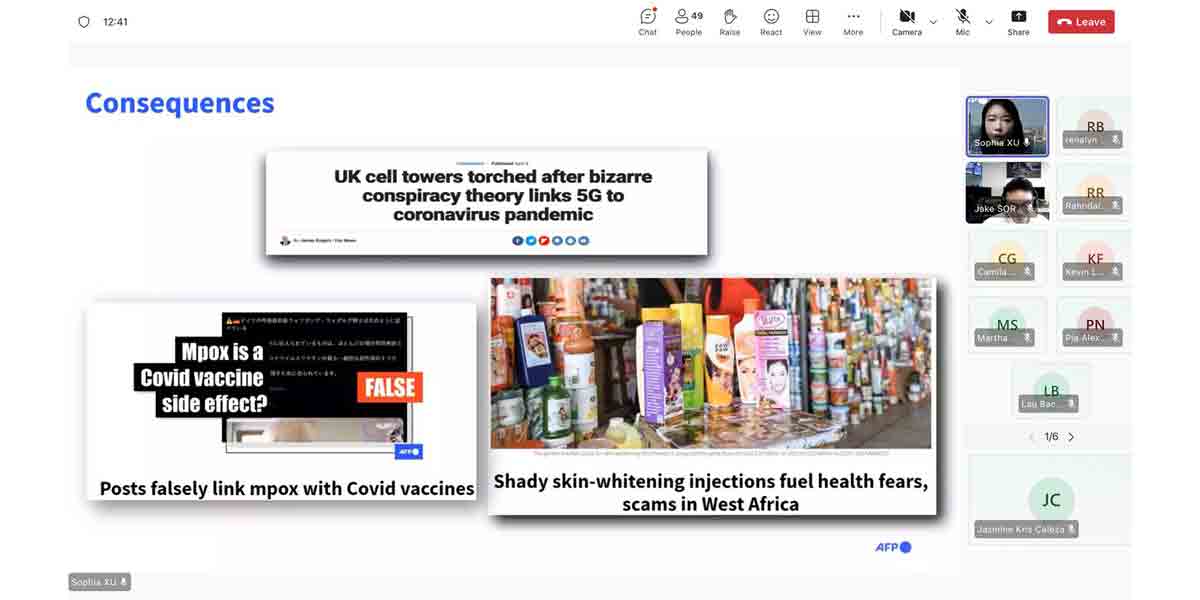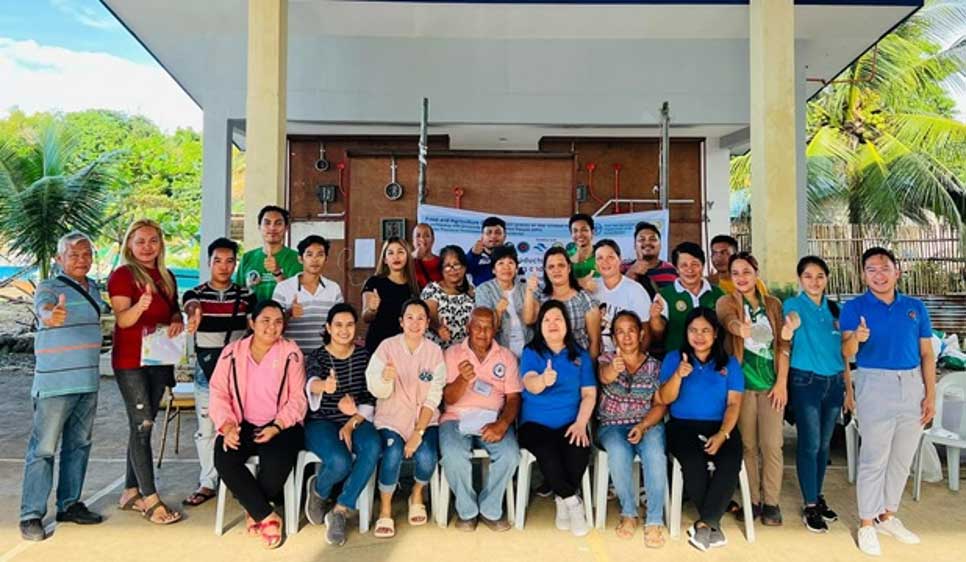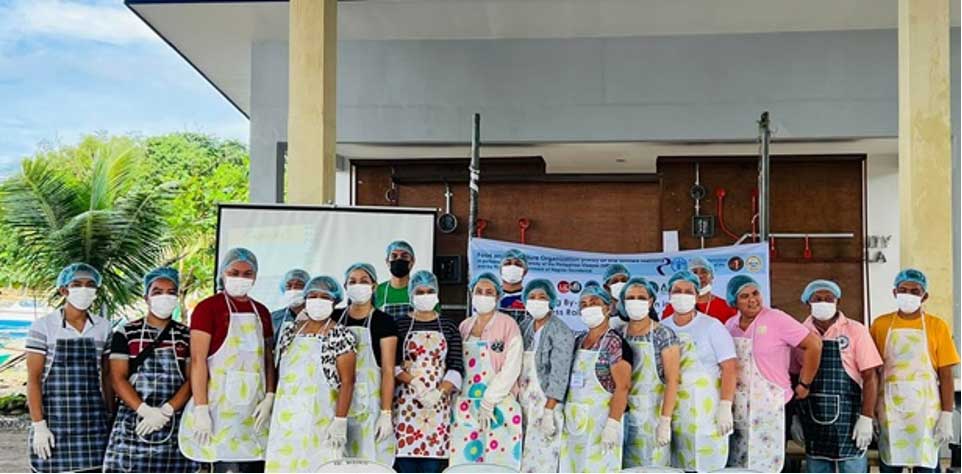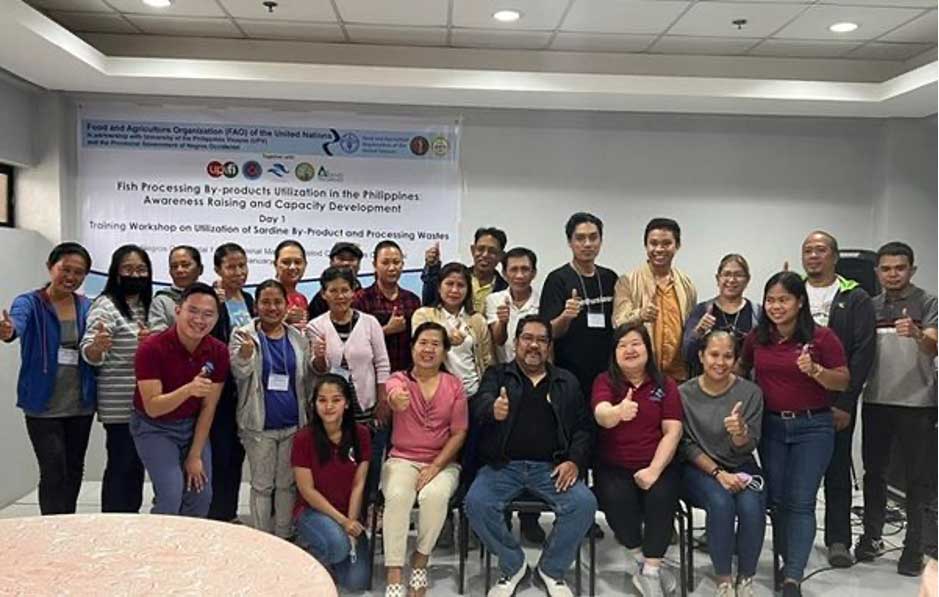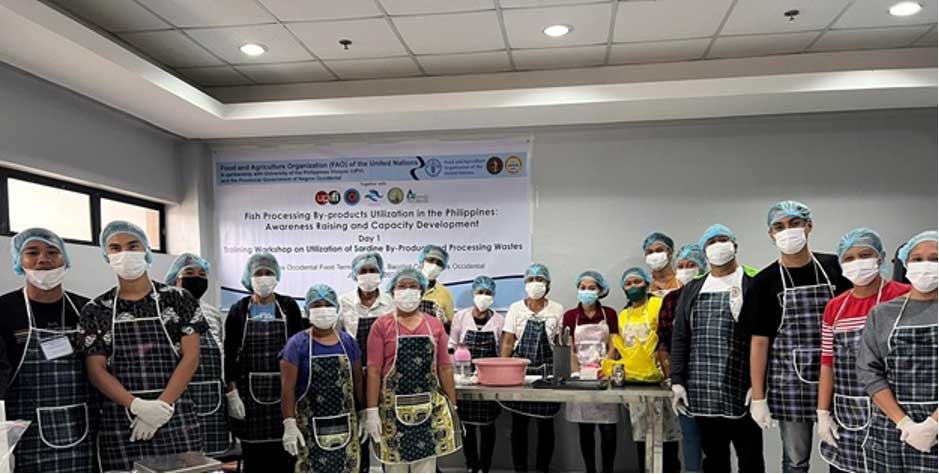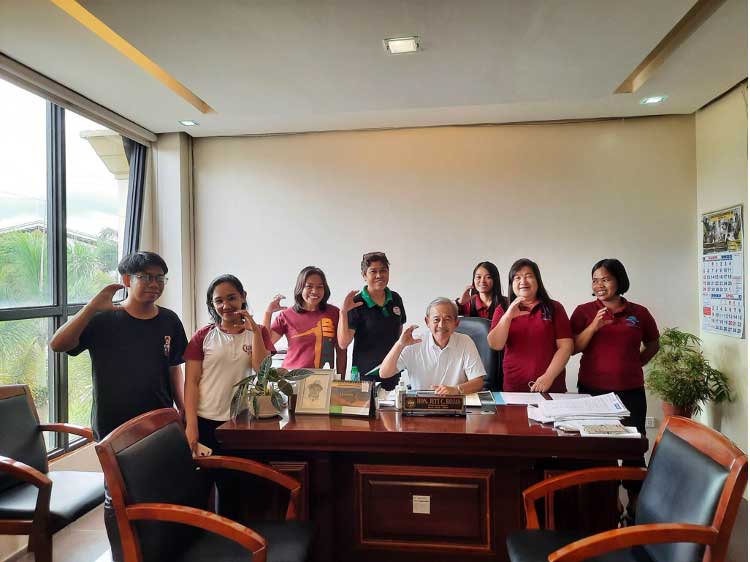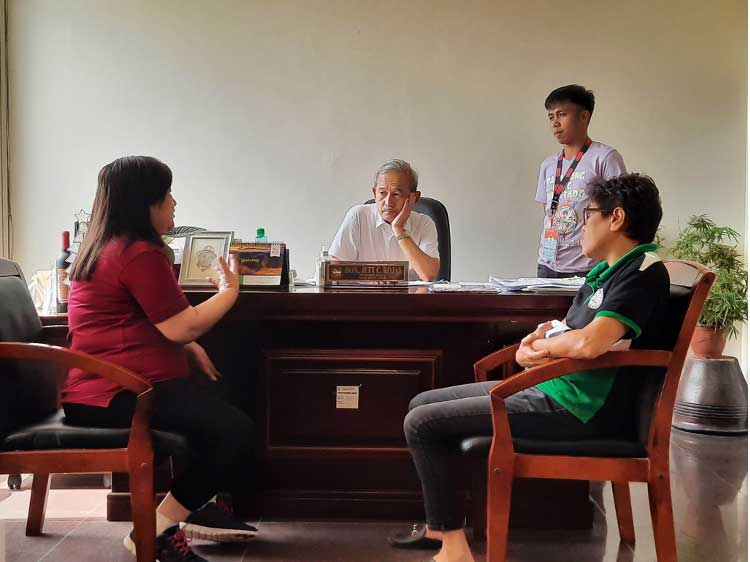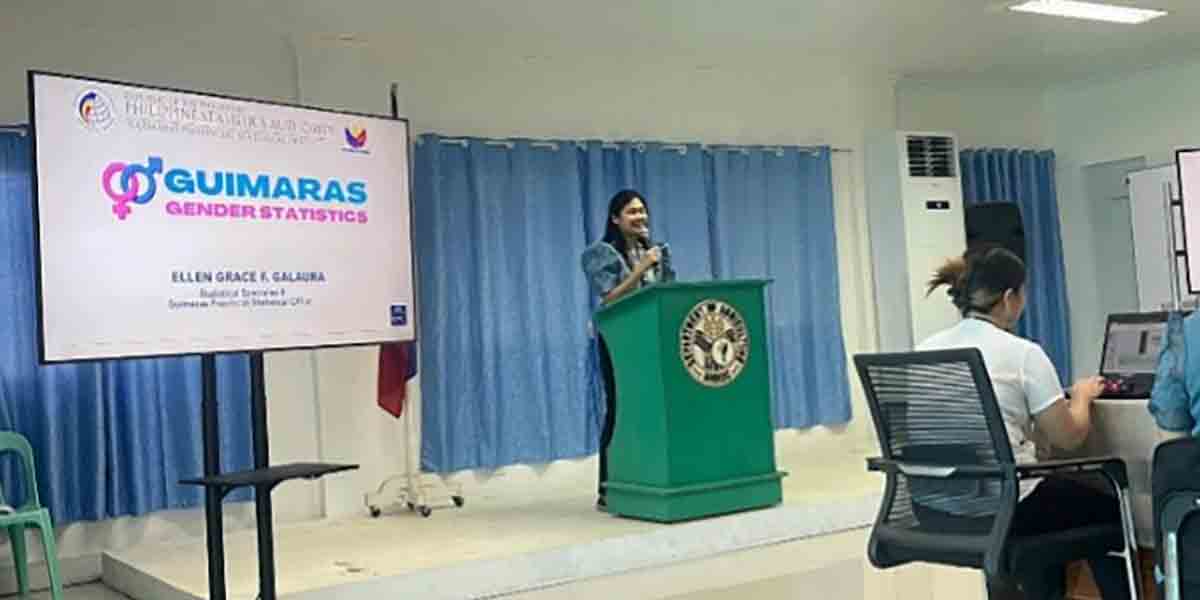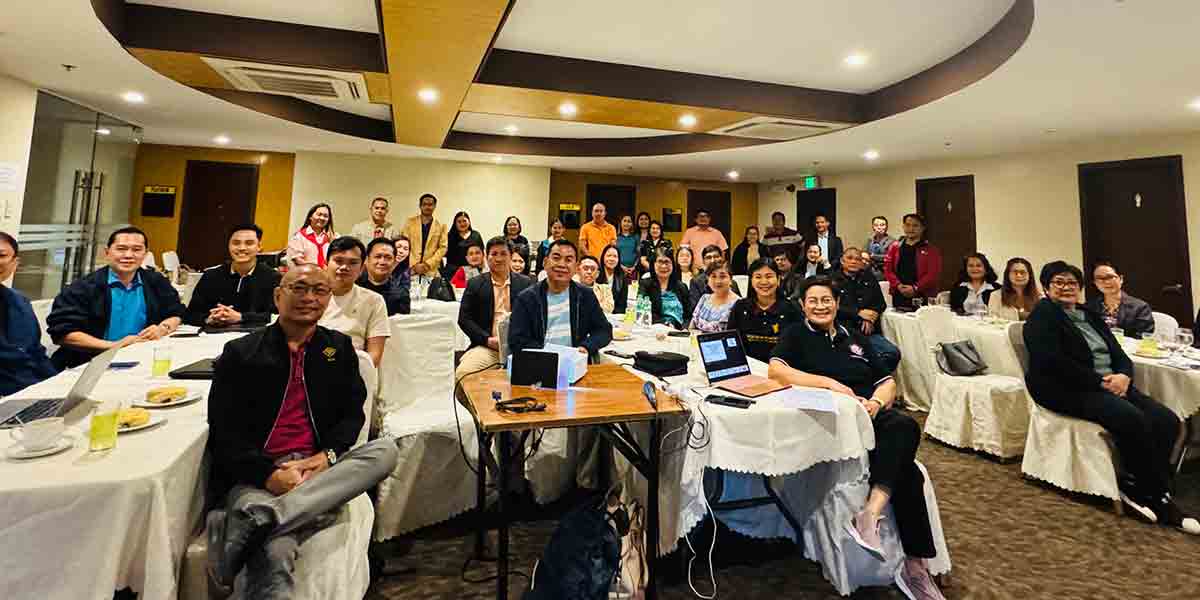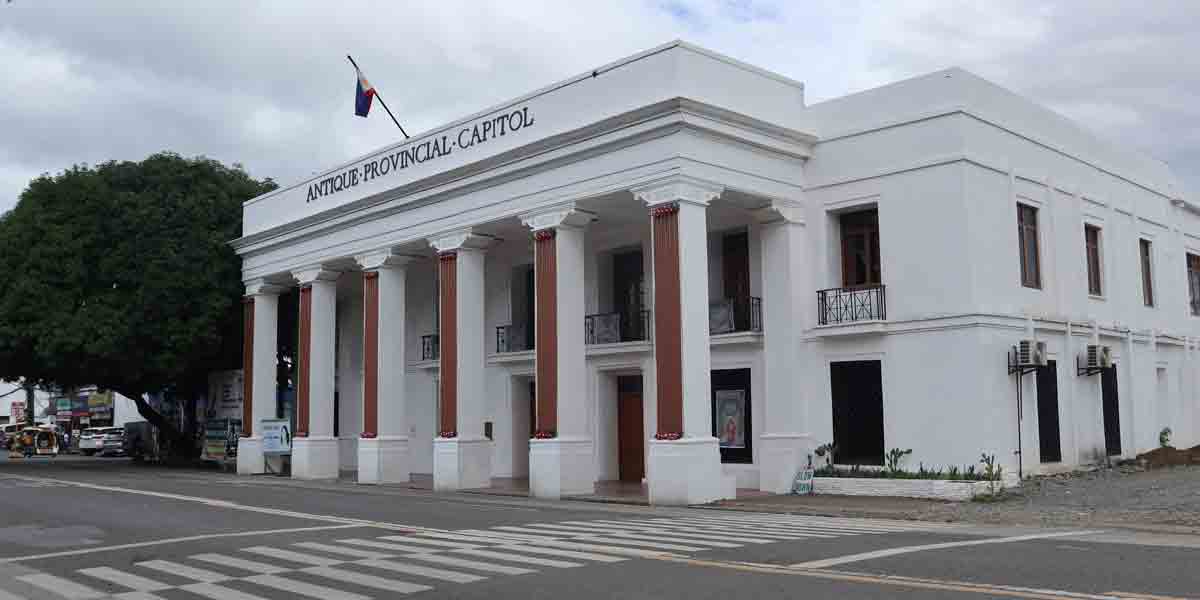A team of researchers from the College of Fisheries and Ocean Sciences (CFOS), UP Visayas trained and shared awareness among fisheries stakeholders in Western Visayas (WV) on the utilization of seafood processing by-products and wastes for economic gain and waste reduction.
The project team led by CFOS dean Prof. Encarnacion Emilia S. Yap recently conducted a pre-testing of the practical guidebooks for the utilization of fisheries by-products and wastes in Brgy. Nasidman, Ajuy, Iloilo.
Ajuy is a coastal municipality situated in Northern Iloilo, that is about 91.9 km away from Iloilo City. The municipality is famous for fishing and agriculture.
The project team composed of Asst. Prof. Lhumen A. Tejano, Ms. May Flor S. Muegue, and Ms. Rowelyn Sargadillos had a meeting with Mayor Jett C. Rojas last March 7, 2023 to discuss the projects and activities that they plan to conduct for the fisheries stakeholders in the municipality.
The undertaking is in line with the implementation of the project on “Fish Processing By-Product Utilization in the Philippines: Awareness Raising and Capacity Development,” that is funded by the Food and Agriculture Organization (FAO) of the United Nations. It aims to provide additional income for fishing communities and to reduce waste.
In January this year, the project team conducted a training-workshop to seafood processors in the Province of Negros Occidental on the processing of sardine and crab by-products and waste to produce value-added products.
Community fishing processors from Bacolod City and municipalities of Himamaylan, Pontevedra, and Binalbagan were trained on how to produce fish silage, a liquid product produced from sardines. Fish silage can be used as a fertilizer and a good alternative to fish meal.
The capacity-building training was conducted last January 26, 2023 at the Negros Occidental Food Terminal Market, Bacolod City.
Meanwhile, Blue Swimming Crab (BSC) processors from the Municipalities of Manapla, E.B. Magalona, and Cadiz City were taught how to produce calcium concentrate from BSC by-products. Held last January 27, 2023, the training was participated by the owners and personnel of various crab picking plants in the aforesaid areas.
The project team conducted hands-on activities and provided special lectures on post-harvest fisheries transfer technology; food quality, safety, and waste management in coastal communities; and good manufacturing practices in producing the aforementioned value-added products. (Ms. Lenilyn B. Gallos/With reports and photos from IFPT)


